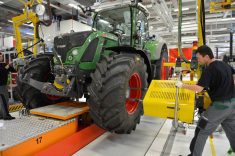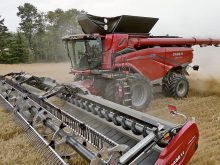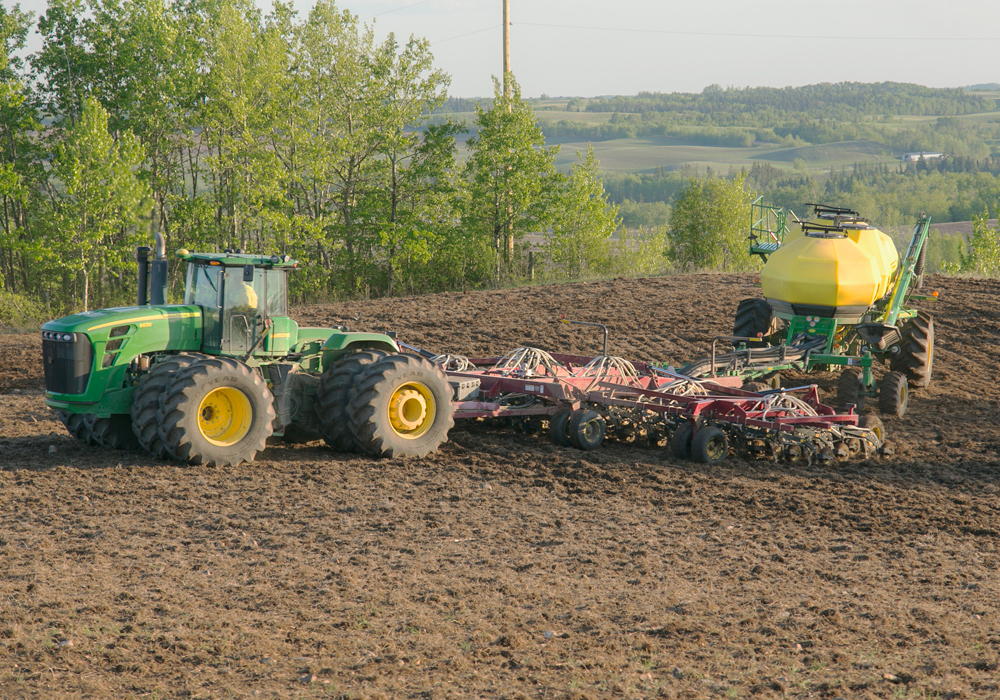Several thousand grain hopper cars owned by prairie farmers are getting a face lift.
But it will be more than a beauty treatment for the 3,411 cars owned by the Canadian Wheat Board.
The improvements will enable the cars to haul more grain and will put more money into farmers’ bank accounts.
CWB officials say the net benefit of the upgrades, including improvements to the cars’ structure, springs, gates and brakes, will be worth an extra $34 million to producers.
That includes an increased carrying capacity of seven percent per car for wheat and higher lease rates charged to the railways for the improved hoppers.
Read Also

VIDEO: Agritechnica Day 4: Robots and more robots, Nexat loves Canada and the trouble with tariffs
Agritechnica Day 4: Robots and more robots, Nexat loves Canada and the trouble with tariffs.
“These upgrades we’re announcing today will pay for themselves over the extended life of all 3,411 cars, as well as generating additional revenue,” said Ian White, president and chief executive officer of the CWB.
The life of the cars will now extend to 2030. The upgrades ensure that the cars meet new standards being put into place by the American Association of Railroads in January 2014.
If the cars had not been upgraded, they might have been forced out of commission shortly after 2015.
CWB minister Gerry Ritz said the government is “putting farmers first” by working with the CWB and offering government-backed credit to carry out the upgrades at a time of economic uncertainty.
The 1,750 cars in Canadian National Railway’s fleet of CWB cars have been undergoing upgrades since December 2008 and are expected to be completed by this December. The cars are moving through Winnipeg’s Transcona yards at a rate of about 60 per week.
No schedule has been set for the 1,661 Canadian Pacific Railway cars.
The CWB got into the hopper car business in 1979-80, purchasing 2,000 cars at a cost of $90.5 million. Over the years, 242 of those have been taken out of service, leaving 1,758.
In 2005-06 the board bought 1,663 leased cars for $25.8 million, of which 10 are now out of service, leaving 1,653.














